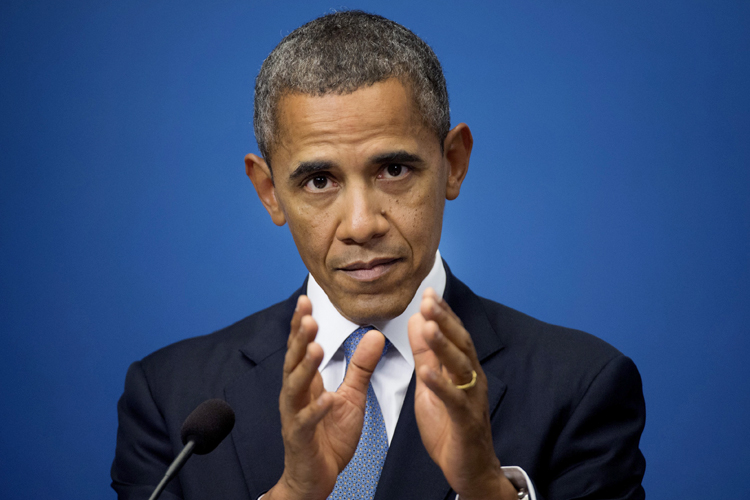President Obama has become the health insurance industry’s top salesperson. Yesterday, in Massachusetts, he urged Americans to take a long view on implementing Obamacare. While it may provide coverage to millions who now lack it, the evidence is mounting that Obama never should have trusted the private health insurance industry to begin with. Let us count the ways.
1. Obamacare was written by the industry for the GOP.
The template for the Affordable Care Act was the Heritage Foundation’s 1992 report for expanding the health insurance marketplace. Their plan had tax credits, while Obamacare has income-based subsidies paid directly to insurers to make it affordable to the poor, working class and middle class. As former Secretary of Labor Robert Reich points out, this was the Republican’s and insurance industry’s plan, not the Democrats, who wanted to expand existing government programs. Its reliance on the private sector was flawed from the start and is at the core of its current troubles.
2. Obamacare did not have meaningful price controls.
Even though the law passed in 2010, most of Obamacare was not slated to take effect until January 2014. That gave insurers several years to ratchet up premiums—with 18 percent to 25 percent annual jumps in states like California where insurance premiums are unregulated. While the law limits the percent of administrative costs that are part of premiums and that took effect in 2012, it does not regulate overall costs. Does anybody think insurers were not going to lock in profits and gouge the public when they could?
3. All insurers didn’t have to cooperate—and didn’t.
Not every health insurance company decided to participate in the ACA, which left many small states with very few options for uninsured residents. That means Obamacare is not offering a range of plans, in which competition is supposed to lower costs, in states like Maine and New Hampshire. That’s left state legislatorswondering if they will have to create interstate compacts with neighbors to create coverage pools to attract private insurers to give residents more choices. Again, insurers did what was best for their bottom lines, not for the public health.
4. Is anyone surprised policies now are canceled?
Nobody should be surprised at the latest outrage from the industry, which iscanceling hundreds of thousands of individuals’ policies, making the president eat his words that anyone can keep coverage they like. Obama ought to have known better. But as Secretary of Health and Human Services Kathleen Sebelius told Congress Wednesday, insurers are canceling policies or offering higher-priced substitutes because the old policies don’t meet the law’s minimum coverage requirements.
People might be angry that their policy is being canceled or might cost more if they can’t get a federal subsidy, but they would feel a lot worse if they were hospitalized and faced thousands in unexpected bills and hounding by debt collectors. Who’s more at fault here, Obama for being played like a card, or insurers for selling bad policies in the first place?
5. And now Republicans prefer a public option?
There’s a lot more to be seen in the Obamacare drama before the nation’s new healthcare regimen emerges. But for now, a final—and perverse—reason why the health insurance industry shouldn’t have been trusted in the first place goes beyond the previous four.
Some Republicans whose states are taking federal money to expand coverage for the poor though state-run Medicaid are predicting that the market reforms won’t work. Ohio Gov. John Kasich wants the law’s public portion to work, theNew York Times reported this week, but predicted the private insurance requiremens won’t. “It’s going to throw people out of work and not control costs,” he said.
That’s beyond ironic, as it reminds everyone that the best approach to healthcare reform is what Democrats and progressives have called for all along—a so-called public option via expanding existing government-run programs such as Medicaid and Medicare.
“Had Democrats stuck to the original Democratic vision and built comprehensive health insurance on Social Security and Medicare, it would have been cheaper, simpler, and more widely accepted by the public,” wrote Reich. “And Republicans would be hollering anyway.”
Instead, Obama and the Democrats trusted the private insurance industry, thought it would do its part, and not keep stabbing them—and policyholders—in the back. That doesn’t mean the ACA doesn’t have positive features, as Obama keeps saying in speeches, but with the President as a punching bag the industry can keep doing what it has always done: put its profits first.
Is anyone really surprised?



